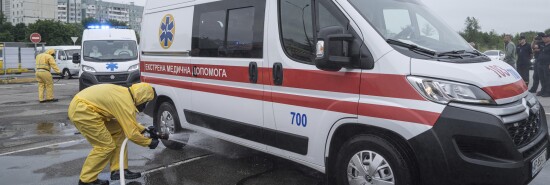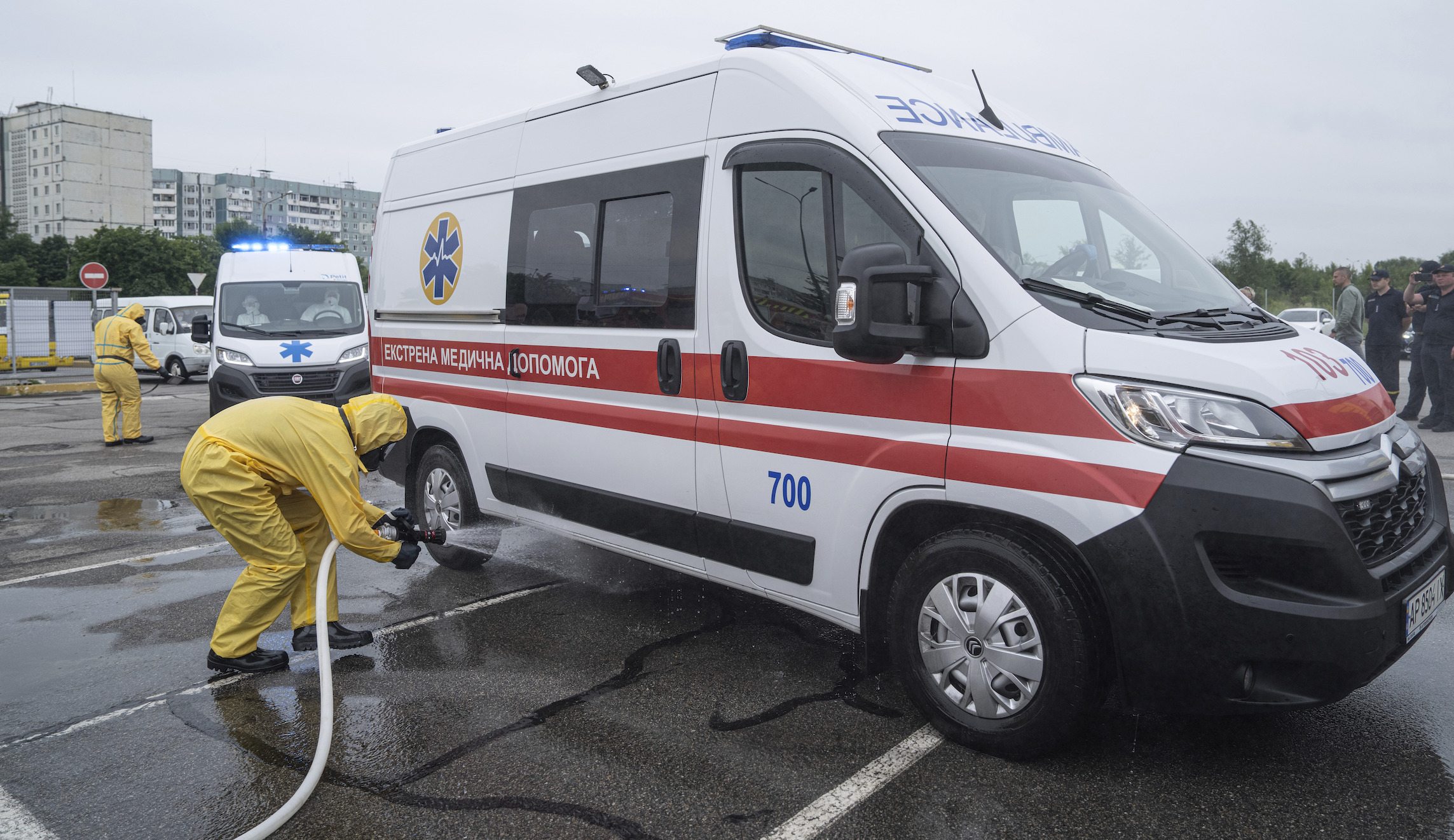
Russia ‘fortifying for battle’ in Ukrainian nuclear power plant
Joel Gehrke
Video Embed
Russia has established “fire points” inside Zaporizhzhia Nuclear Power Plant in apparent anticipation of a struggle for control of the site, according to Ukrainian reports.
“Their work on fortification is still ongoing, and there are no signs that they are going to leave from here yet,” an unnamed employee at the plant was quoted as telling a Ukrainian outlet. “They could sabotage it; no one can stop them. But it does not look like preparation for sabotage because they are fortifying [the plant] as if for a battle.”
WHY THE UFO WHISTLEBLOWERS ARE GETTING A MIXED REACTION
A showdown for control of the plant has loomed for months on the horizon of the war, ever since Ukrainian forces repulsed Russian troops around Kyiv and began to liberate occupied territory in eastern and southern Ukraine. That prospect has fed anxiety about the possibility of a nuclear disaster at the site, although Ukrainian authorities have modulated their pessimistic forecasts after a flurry of warnings that Russian forces had placed artillery and mines at the plant.
“The threat is decreasing,” Ukrainian military intelligence chief Kyrylo Budanov told Reuters. “It’s not eliminated. As long as the station is occupied this can happen again any time if they want.”
Russian officials countered the Ukrainian allegations by claiming that Ukrainian President Volodymyr Zelensky intended to “blow up” the plant and cause a radiological disaster, but a chorus of expert analyses have cast doubt on that possibility.
“ZNPP’s six reactors have been shut down for over ten months and are no longer making enough heat to cause a prompt radiological release,” the American Nuclear Society said Wednesday afternoon. “Thick, steel-reinforced concrete containment buildings protect the reactor cores and are designed to keep any radioactive materials isolated from the environment. In the unlikely event that containment structures were breached, any potential release of radiological material would be restricted to the immediate area surrounding the reactors.”

That technical assessment found an unlikely echo on a Russian state media broadcast. “It’s practically impossible to destroy the reactors with the means Ukraine currently has at its disposal,” Russian military analyst Vladislav Shurygin, a prominent pro-war pundit, said during a discussion translated by the Russian Media Monitory project. “Those reactors are of the latest generation … they are built with a quadruple redundancy system. Up to 90% of them are currently in cold shutdown.”
The plant remains largely staffed by Ukrainian personnel who worked there prior to the Russian occupation. The United Nations has deployed inspectors from its lead nuclear watchdog, the International Atomic Energy Agency, but they have only limited access to the site.
“A nuclear power plant should never be attacked, and a nuclear power plant should never be used as a military base,” IAEA director-general Rafael Grossi told reporters this week. “So yes, we are concerned that we are present. We know what needs to be done to avoid a nuclear accident, and we hope that all those who have the responsibilities will act according to that and spare us all a tragic, radiological accident over there.”
The plant sits in a strategically important situation for both sides. Putin signed documents purporting to annex the Zaporizhzhia region into the Russian state, along with three other regions that collectively link the internationally-recognized Russian borders to Crimea, the Ukrainian peninsula that Russia seized in 2014.
Russian forces have never controlled the entirety of Zaporihzhzia, however, and a Ukrainian breach of Russian lines in that area would divide the occupying forces into two isolated masses.
“Russian statements accusing Ukraine of imminent sabotage against the ZNPP are likely part of a broader information operation aimed at undermining support for Ukraine ahead of the upcoming NATO summit and dissuading Ukrainian forces from counteroffensive operations in Zaporizhia Oblast,” a team of analysts at the Institute for the Study of War wrote in their latest assessment of the military contest.
CLICK HERE TO READ MORE FROM THE WASHINGTON EXAMINER
The occupying forces retain the potential to create a nuclear disaster — “If you set a goal and involve experts, you can cause a lot of damage,” the employee said. Ukrainian authorities have signaled that they believe Russia will destroy the plant only if they expect to lose control of it.
“The [Russian] goal may be to put the power plant out of service as an economic facility,” the power plant employee was quoted as saying. “They could do it quickly by damaging a generator or a turbine and shutting the ZNPP down for a long time. This is one of the most likely scenarios that may occur during the retreat of the Russian forces.”
